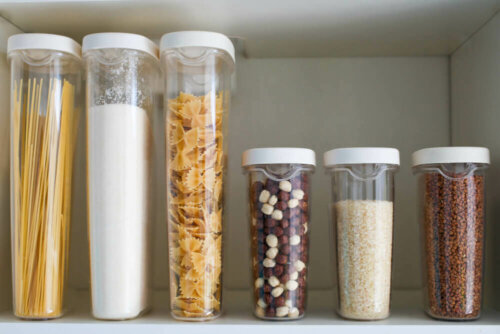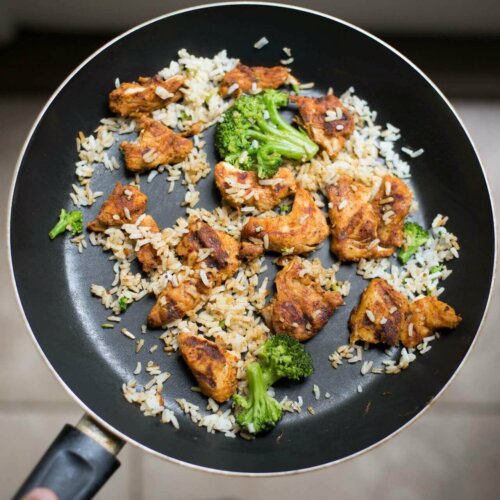Batch Cooking: Learn How to Prep Your Meals and Cook Less

So, what is batch cooking? This kitchen trend should make your life easier by cooking for the whole week in one day.
This way of organizing meals promises to save you time, money, and effort. We’ll tell you what it’s about and what you must take into account to put it into practice.
This is how batch cooking can change your life

The basic principles of batch cooking are good kitchen organization, good planning, and recipes that are as healthy as they’re delicious. Thanks to this, you’ll be able to prepare a weekly menu in one afternoon and have it ready to eat throughout the week.
What does this mean, though? Forget about eating badly, improvisation, and the problem of thinking about what you’re going to prepare every day. Batch cooking has a lot of benefits:
- More time – during the week, you just have to heat the food and that’s it!
- You’ll eat better – by having everything planned out, you don’t improvise and you include healthy foods instead of pre-packaged ones.
- More money – when you have a plan, you buy what you’re really going to use. You’ll see how you’ll also stop wasting food.
- Your kitchen will be cleaner – even if you make a mess the day you cook, it’ll be easier to clean the rest of the week since you just have to heat the portion you’re eating.
Batch cooking the right way
The first step is to sit down and plan your weekly menu. Keep in mind how many original dishes you’ll need, the starter, main, and side dishes.
Once that’s clear, it’s time to make your grocery list. Before doing so, always think about what you already have in your fridge and freezer so you can use it and not buy anything you already have.
Remember that a single ingredient can give you several meals. For example, you can roast some extra vegetables for a garnish for one of your main meals one day, and use the rest for a soup the following day.
You may not feel like spending an entire afternoon cooking, but if you think big, you’ll see that it means more free time. Many dishes can be frozen such as stews (as long as they don’t have potatoes), vegetables, meatballs, etc. If you freeze them in containers separated into portions, you’ll have leftovers for several days.
What about salads? You should wash your green vegetables as soon as you buy them and once they’re clean, drained, and dry, you can store them in bowls covered with paper towels or in closed bags. The key is to avoid humidity. Otherwise, they’ll rot.
Storage is another important point to consider. The food must be left to cool before putting it in the fridge or freezer to avoid fermentation.
As for the containers, we recommend using glass Tupperware. Don’t forget to label them with the date you prepared them. Use masking tape so you can easily change it.

These are foods you SHOULDN’T freeze
- You shouldn’t freeze vegetables that are to be eaten raw.
- If you freeze fruit, you can’t eat it as it is, but you can use it to make smoothies, jams, ice cream, etc.
- Never freeze eggs with shells on, as they’ll break when they expand. However, you can freeze them if they’re beaten and in an air-tight container.
- Raw or cooked potatoes become gritty.
- Rice doesn’t hold up well in low temperatures.
- Some dairy products such as yogurt or certain creamy sauces change their texture when defrosted. However, they can be a great base for preparing other dishes.
There are certain foods you should always have in the freezer because, besides getting you out of any predicament, you can make them in large quantities.
Tomato sauce, soup stocks, vegetable stews or soups, and soup bases are some examples. Another indispensable item in batch cooking is an oven that’ll allow you to cook a lot of food at once.








